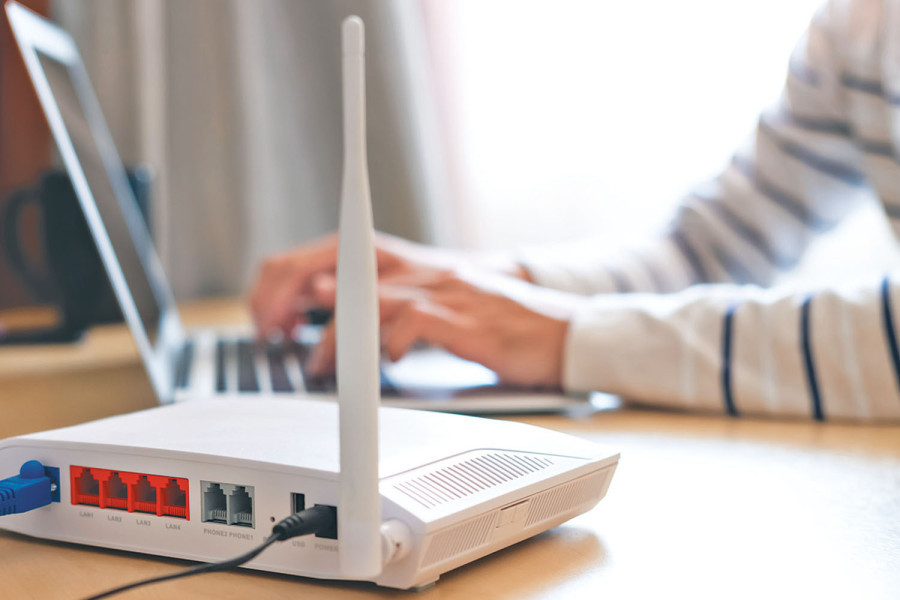Money
ISPs say ready to file due taxes to government
On May 13, the top court scrapped the writ petition by Worldlink Communications and ordered the ISPs to pay the taxes they had raised from the public.
Post Report
Internet service providers say they are awaiting the full text of the Supreme Court’s ruling to pay the taxes they raised from the public.
The service providers (ISPs) raised nearly Rs4 billion in rural telecommunications development fees and royalty charges on maintenance from the public since the fiscal year 2017-18 but did not transfer the amount to the government.
The ISPs have been arguing that the former parliamentary Public Accounts Committee had ordered the fees’ waiver.
On May 13, the top court scrapped the writ petition filed by Worldlink Communications and ordered the ISPs to pay the government taxes that they had raised from the public.
“We will obey the Supreme Court’s verdict. As the writ petition has been scrapped, we are discussing with the Nepal Telecommunications Authority on the amount that ISPs owe to the government and the payment modality,” said Binay Bohra, owner of the Vianet internet service provider.
The tug-of-war between the ISPs and the government deprived thousands of people of the service when the Indian vendor on which the ISPs rely for the Internet bandwidth suddenly severed the link for hours.
On May 2, Airtel, a leading telecom provider of India, cut upstream services to Nepal after the dispute between the government and ISPs over the payment dispute remained unresolved for months. The disruption started at around 5 pm and the services were restored after around five hours.
According to the Internet Service Providers Association of Nepal, Airtel provides around 70 percent of upstream services to Nepal.
Airtel agreed to restore the service after the Nepal Telecommunications Authority, the regulator, promised to sort out the payment issue ‘responsibly.’
For nearly two years, the Ministry of Communication and Information Technology has reiterated that unless the ISPs pay the due taxes, it will not recommend the foreign exchange to be made available by the Nepal Rastra Bank to the service providers so they can forward the payment to upstream service providers.
The ISPs have not paid the charges as the erstwhile parliamentary Public Accounts Committee had a few years ago ordered the government to exempt them from taxes on non-telecom components like web service, co-location, hosted service, disaster recovery, managed service, data centre, and cloud service.
Following the order, in a letter dated July 15, 2018, the licensing department of Nepal Telecommunication Authority wrote to the Inland Revenue Department requesting that internet service providers not be subjected to telecommunication charges for non-telecommunication services.
The committee said that internet service providers do not have to pay royalties and Rural Telecommunications Development Fund charges for three fiscal years: 2017-18, 2018-19, and 2019-20.
But the auditor general brought the issue to light.
Nepal's constitutional supreme audit body pointed out that such fees, which the ISPs have raised from the public, should not be waived and instructed recovery of the charges. Following this, the government wrote to the ISPs to clear the dues.
The current Public Accounts Committee has ordered the government to recover the dues from the ISPs.
Nepali ISPs owe Airtel more than $30 million (Rs4.3 billion). They defaulted on payments for upstream services a year ago.
The Indian vendors also threatened to suspend services starting January 1 this year if Nepali ISPs failed to settle the outstanding dues. However, following a change in government, the issue remains unresolved.
The ISPs’ annual transactions near Rs27 billion, with the government earning more than Rs9 billion in revenue under eight headers.
Around 10.6 million people use the internet in Nepal through 20 ISPs in the country, including the state-owned Nepal Telecom. ISPs say they provide direct employment to more than 15,000 people.




 13.12°C Kathmandu
13.12°C Kathmandu












